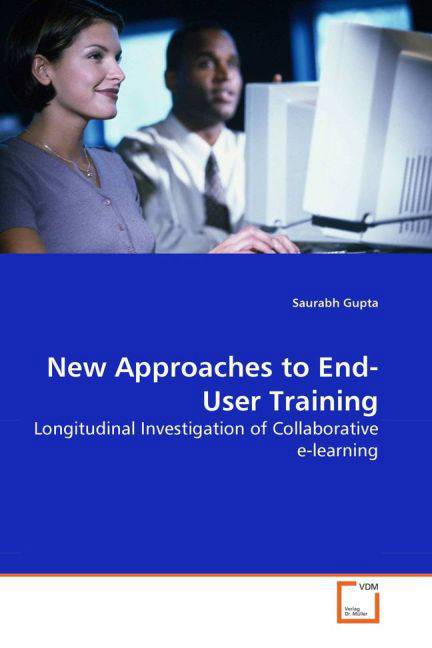
- Afhalen na 1 uur in een winkel met voorraad
- Gratis thuislevering in België vanaf € 30
- Ruim aanbod met 7 miljoen producten
- Afhalen na 1 uur in een winkel met voorraad
- Gratis thuislevering in België vanaf € 30
- Ruim aanbod met 7 miljoen producten
Zoeken
New Approaches to End-User Training
Longitudinal Investigation of Collaborative e-learning
Saurabh Gupta
Paperback | Engels
€ 77,95
+ 155 punten
Omschrijving
Over the last couple of decades, there has been tremendous use of information technology in business. Business leaders cite training end-users to use technology as a one of the key challenges of the future. This book explores three contemporary methods in end-user training: e-learning, peer collaboration and collaborative e-learning. Drawing on the two foundational disciplines of Information Systems and Education, this book first summarizes the inconsistencies in existing literature. Next, it outlines a theoretical model that describes the effect of learning methods using the structures embedded in the technology, teams and techniques as well as the important role of faithful appropriation of learning methods on learning outcomes. Finally, drawing on the results of a 2X2 multi-period quasi-experiment, the book outlines detailed guidelines for researchers and practitioners in the area of End-user training as well as anyone else involved in the area of training.
Specificaties
Betrokkenen
- Auteur(s):
- Uitgeverij:
Inhoud
- Aantal bladzijden:
- 268
- Taal:
- Engels
Eigenschappen
- Productcode (EAN):
- 9783639005820
- Uitvoering:
- Paperback
- Afmetingen:
- 150 mm x 220 mm
- Gewicht:
- 415 g

Alleen bij Standaard Boekhandel
+ 155 punten op je klantenkaart van Standaard Boekhandel
Beoordelingen
We publiceren alleen reviews die voldoen aan de voorwaarden voor reviews. Bekijk onze voorwaarden voor reviews.







